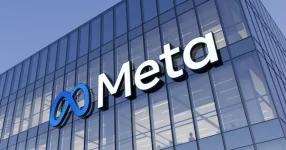Meta faces legal challenges from the Federal Trade Commission over its acquisitions of Instagram and WhatsApp. The FTC claims these purchases helped Meta gain control of social media markets and reduce competition. In federal court, the agency presented emails where CEO Mark Zuckerberg wrote about "crushing" competition before buying Instagram in 2012 and called WhatsApp a "big risk" before acquiring it in 2014.
FTC lawyer Daniel Matheson argued that Meta bought rivals instead of competing with them, leaving consumers with lower-quality options. Meta attorney Mark Hansen countered that the company improved both platforms after purchase. He emphasized that Meta services remain free, claiming this shows the company lacks monopoly power because charging fees would drive away users.
Legal experts say the case presents difficulties for the FTC. University of Georgia associate professor Laura Phillips-Sawyer called it "a real uphill battle." The judge must decide how to define a monopoly in this context. Zuckerberg's internal emails might strengthen the government's position against the social media giant as the case progresses through court.
FTC lawyer Daniel Matheson argued that Meta bought rivals instead of competing with them, leaving consumers with lower-quality options. Meta attorney Mark Hansen countered that the company improved both platforms after purchase. He emphasized that Meta services remain free, claiming this shows the company lacks monopoly power because charging fees would drive away users.
Legal experts say the case presents difficulties for the FTC. University of Georgia associate professor Laura Phillips-Sawyer called it "a real uphill battle." The judge must decide how to define a monopoly in this context. Zuckerberg's internal emails might strengthen the government's position against the social media giant as the case progresses through court.












